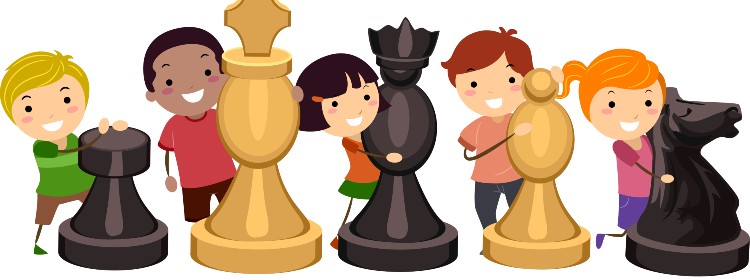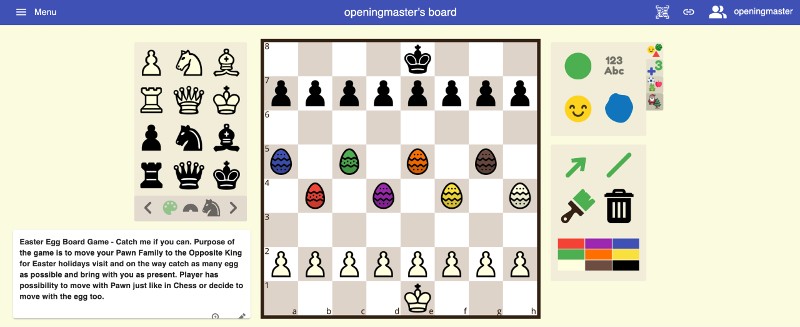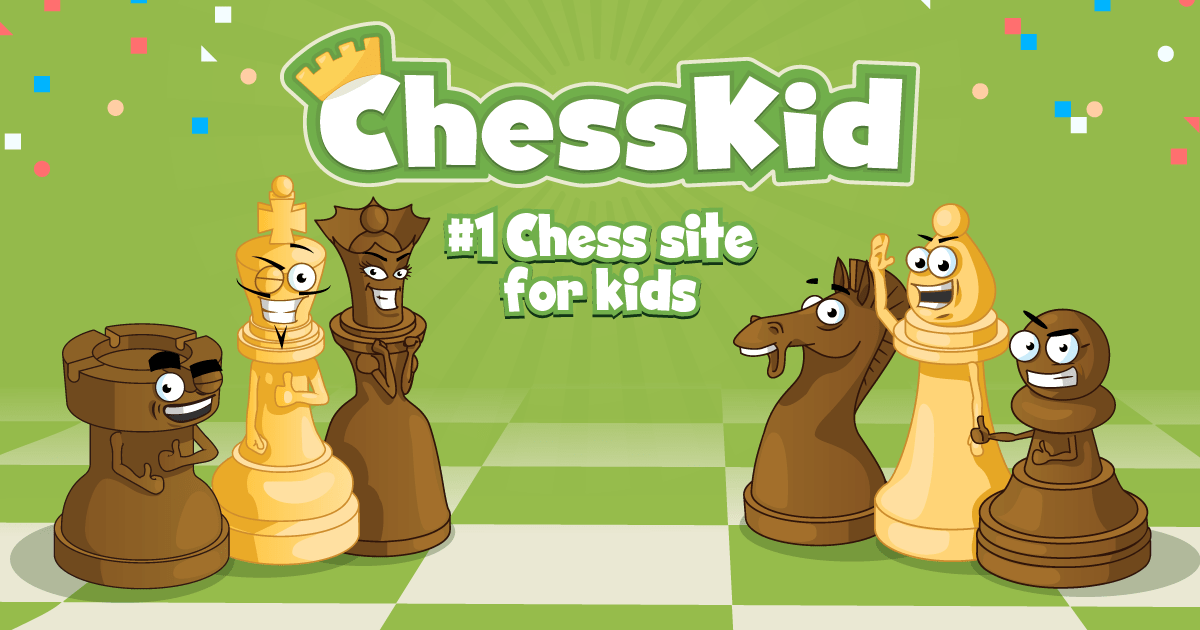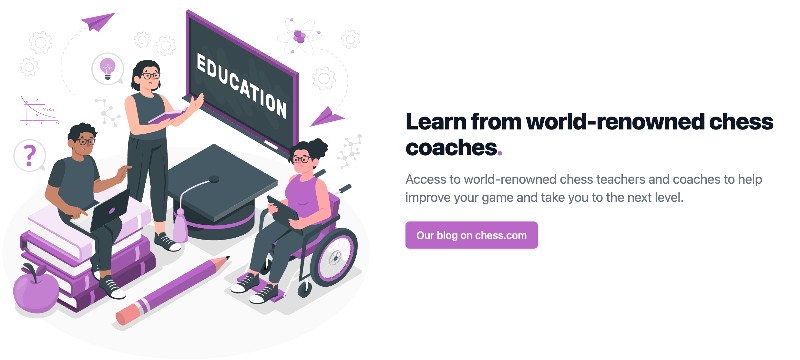Kids can start learning chess as early as 3-4 years old, but the ideal age to begin teaching them is around 5-6 years old. At this age, children are able to understand basic concepts such as the objective of the game and the movements of the pieces. However, it is important to keep in mind that every child is different, and some may be more ready or interested in learning chess earlier or later than others.
It is also important to note that the way in which chess is taught to young children should be adapted to their level of development and attention span. For example, younger children may benefit from more visual aids and simplified explanations, while older children may be able to handle more complex concepts and strategies.
Ultimately, the decision of when to start teaching kids chess will depend on the individual child and their level of interest and readiness.
The best way to teach kids chess is to make it fun and engaging for them. Here are some tips to get started:
Start with the basics
Teach kids the names and movements of each piece and the objective of the game.
Teaching kids the names and movements of each chess piece, as well as the objective of the game, can be broken down into simple steps. Here are some tips on how to teach kids these fundamental chess concepts:
Start with the basics: Begin by introducing the names of each piece and their basic movements. Show them how each piece moves and the direction in which they can go.
Use visual aids: Use a chess board with large, colorful pieces to make it more engaging for kids. You can also use pictures or illustrations to help them remember the names and movements of each piece.
Practice, practice, practice: Have kids practice moving each piece and ask them to name the piece and its movement as they do so. This will help reinforce their knowledge and build their confidence.
Explain the objective: Explain to kids that the objective of the game is to capture the opponent's king while protecting their own king. Use examples to help them understand the importance of strategy and planning.
Play games: Once kids have a basic understanding of the pieces and objective, encourage them to play games against each other or a computer. This will help them apply what they have learned and develop their skills.
Keep it fun: Make learning chess a fun and engaging experience by using games, puzzles, and other activities to reinforce their knowledge.
Overall, teaching kids the basics of chess can be a fun and rewarding experience for both children and adults. By breaking it down into simple steps, using visual aids, and making it interactive and fun, you can help kids develop a love for the game that will last a lifetime.
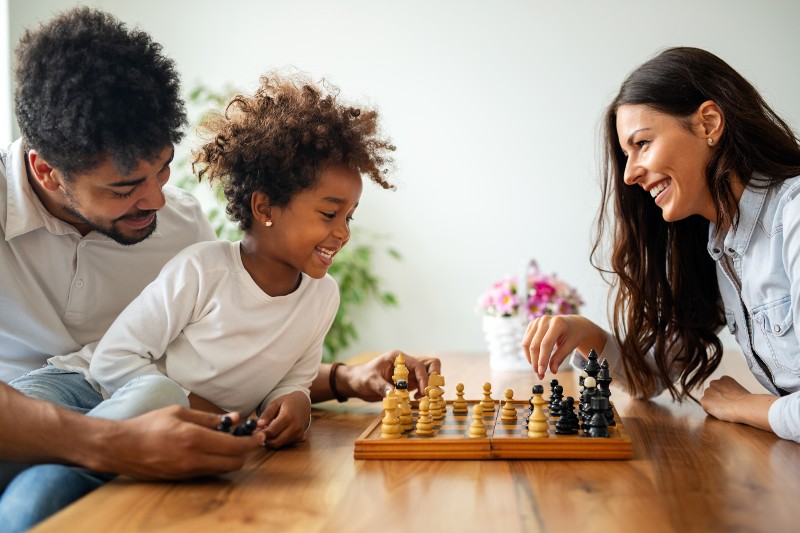
Use visuals
Using chess boards with large, colorful pieces is a great way to make the game more visually appealing and easier to understand for kids. Here are some tips on how to use these types of chess boards effectively:
Choose a board with large, clear pieces
Look for a chess board with pieces that are easy to distinguish from one another and have clear markings or symbols to indicate their movement.
Use contrasting colors
Choose colors that are contrasting and easy to differentiate, such as black and white, or bright colors like red and blue.
Make it interactive
Use the board to play games with your child or have them practice moving the pieces on their own. You can also use the board to create puzzles or challenges to reinforce their knowledge.
Use it as a teaching tool
Use the board to teach basic concepts such as the names and movements of each piece, and the objective of the game.
Make it a group activity
Encourage kids to play with friends or family members to make it a social activity. This can also help them develop their communication and strategic thinking skills.
Keep it fun
Above all, make sure to keep the game fun and engaging for kids. Use games, puzzles, and other activities to reinforce their knowledge and keep them interested in the game.
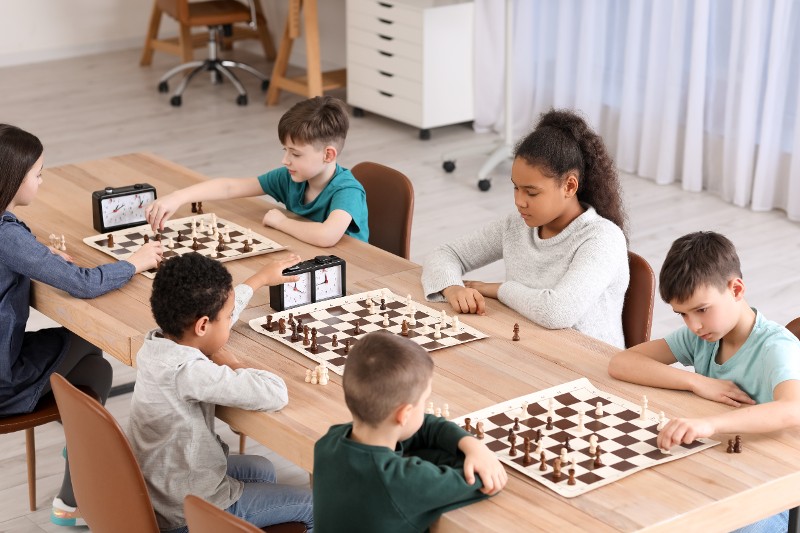
Logiqboard
Have you heard about Interactive shareable chessboard? It's called Logiqboard and teaches kids the chess board is FUN.
You can play chess, make various own strategy games, do the maths and logic on the easy to use online board. You can do it together in the class or home, in real time. And best thing is it's free. No registration required.
We created this game within few minutes. It's called:
Easter Egg Board Game - Catch me if you can.
Purpose of the game is to move your Pawn Family to the Opposite King for Easter holidays visit and on the way catch as many egg as possible and bring with you as present. Player has possibility to move with Pawn just like in Chess or decide to move with the egg too.
https://logiqboard.com/boards/9Rk2wIh6qa
Play games
Having kids play games against each other, or against a computer or chess app, is an effective way to help them practice and reinforce their knowledge of chess. Here are some tips on how to make these games engaging and educational:
Choose appropriate opponents
Match kids up against opponents of similar skill levels to ensure that the games are challenging but not too difficult.
Encourage good sportsmanship
Teach kids the importance of good sportsmanship, such as congratulating their opponent after a game, and not getting upset or overly competitive.
Use chess clocks
Chess clocks can add an extra element of excitement to the game and help kids learn to think and make decisions under pressure.
Analyze the game afterwards
Go over the game with the kids after it's finished to identify areas for improvement and discuss what they did well.
Use chess apps or computer programs
Chess apps and computer programs can provide a challenging opponent and allow kids to practice their skills in a fun and interactive way. It's never too early to own a quality chess database as a reference to look up the game from the repertoire. And since we are here. Why don't you download the best chess database on the market.
Opening Master - OTB chess database with 9.5 million human classical chess games.

Make it fun: Above all, make sure to keep the games fun and engaging. Use games, puzzles, and other activities to reinforce their knowledge and keep them interested in the game.
By having kids play games against each other, or against a computer or chess app, they can develop their skills, improve their strategy, and become more confident in their abilities. It can also be a fun and exciting way to learn and practice the game of chess.
Play it safe
Once of the major concerns of parents these days is online presence of their children. What do they do online, whom they chat interact and....play. Unfortunately, there are many child predators out there and you want to make sure your kids is safe. Solution? Chesskid.com
The #1 Chess Website For Kids
For Kids to Learn and Play Chess For Parents and Coaches to Teach Chess. No Personal Info, Restricted Chat, Activity Reports
The website is optimized for running School Chess Programs, has hundreds of recorded funny chess videos for kids and overall offers safe environment to children playing chess.
Engaging online curriculum
Easy to manage clubs/classrooms
Student chess report cards
Organize tournaments etc.
Encourage creativity
Let kids experiment with different strategies and ideas, and encourage them to be creative in their play. Focus on one or two concepts at a time, such as opening moves or basic tactics, and gradually build on them.
Make it social and positive
Encourage kids to play with friends or family members to make it a social activity. Always keep it with positive mood and fun. Don't try to make your child grandmaster over night.
Overall, the key is to make learning chess a fun and engaging experience for kids. By keeping it simple, focusing on the basics, and allowing for creativity and socialization, you can help foster a love for the game that will last a lifetime. And perhaps by the age of 12-13 you will have International Master at home aiming to get his or her grandmaster title.
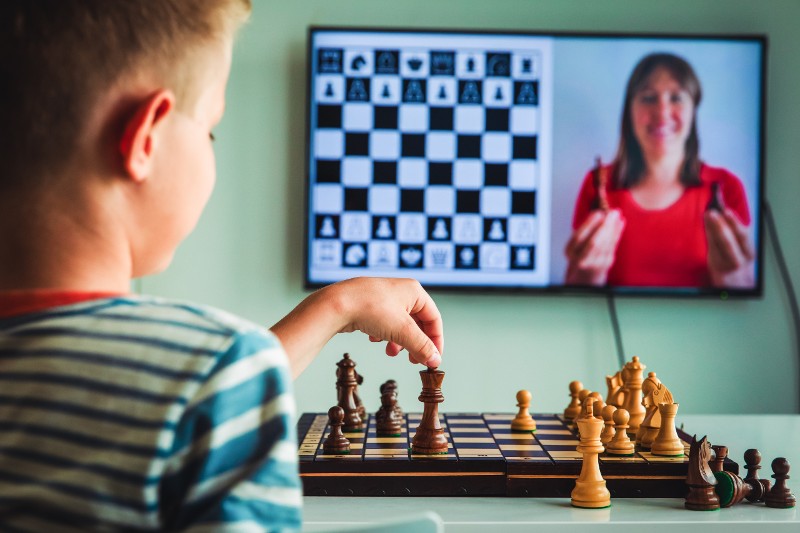
Unstoppable Chess Academy
Depending how old is your child you can start thinking about a chess coach. Typically chess coaches ask between 10-50 UDS per hour. For the start you don't need International Masters or Grandmasters (they are expensive), you needs a Kids coach. They must love their job, teach chess with fun and positive way with structured approach and attitude.
The Unstoppable Chess Academy is for anyone who is interested in mastering the art of chess. Whether you're a beginner or an experienced player, the Academy offers a wide range of resources and tools that can help you improve your game and develop your skills. Contact This email address is being protected from spambots. You need JavaScript enabled to view it. if you want to learn more.



